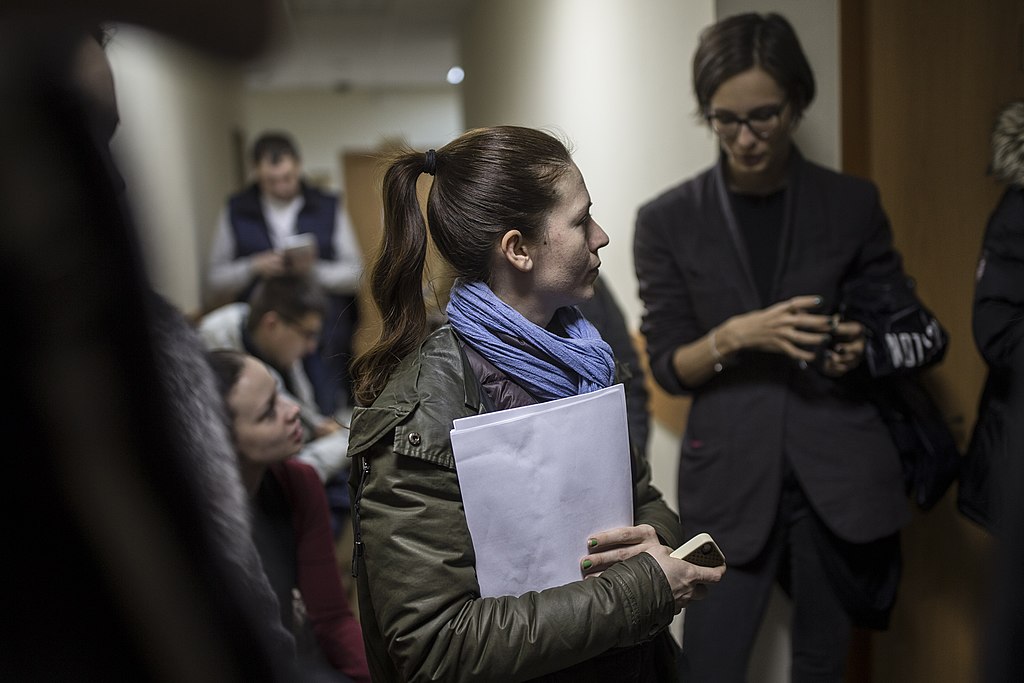Roman Hrybov, the Ukrainian border guard who famously told a Russian warship “go fuck yourself” on the first day of Russia’s shameful invasion of Ukraine is alive — and has received a medal.
Initially presumed dead, the full story of his survival may never be told. Propaganda is an important tool of war and, although the word usually has negative connotations, the truth is a people under attack need their heroes and rallying cries.
I’ve always prided myself on being obsessive over facts. My reputation has rested on it. Since this invasion, however, I’ve stopped being impartial over many narratives. I’ve had to recuse myself from certain assignments. I’ve had to step back, breathe, cry ugly tears, and dream both good dreams and nightmares. The machinery of the conflict has ground up my mind, if not my bones.
Last week, a former colleague of mine, Oksana Baulina, was killed while on assignment in my native Kyiv. She was a Roman Hrybov type — spiky and defiant. She and I had many disagreements when she was alive.
Looking back on it, I had often been imperious with Oksana, while she loved to question me, like a born journalist ought to. While often annoyed by her, I still came away from our showdowns with an abiding sense of respect for her — because I knew she was the real deal.
She never got angry at me in return, because she was a consummate professional. One can argue that it was her professionalism that doomed her. Others would choose to stay away, but not Oksana. Looking over our message history, I’m filled with shame at the fact that I never told her just how much I actually respected her. I hope she knows now.
Oksana had rushed to the site of an air strike — another scar on my beloved birthplace, a scar that she was exploring while I hung back, the duty of single motherhood pinning me in place — and was killed when another strike hit. The Russians do that a lot, as a matter of fact. They’ve done it in Syria too. A double tap. So that rescuers and journalists are buried with the initial victims.
This is a column about heroes and Roman Hrybov is one of mine. And so is Oksana. Heroes can exist in multiple dimensions, or so this conflict has taught me. You don’t need distance to know when someone is a hero.
Heroes are not there to be worshiped. Instead, they show us the power of transmutation — the way despair sheds its outer layers, down to a molten core, the way you hit bottom and start to swim upwards.
“And now these three remain: faith, hope and love. But the greatest of these is love.”
I always thought the above, from Corinthians, was a list. But no. It’s a process.
You have to find faith from somewhere — from any odd place, it is now obvious to me — and you have to grab onto it. It’s faith that allows you to eventually, perhaps shyly or haltingly, hope. It’s only with hope alive in you that you can finally love.
I don’t mean that necessarily in a religious sense, but if it helps you to read that in a religious sense, that too is good.
A few days after Oksana’s death, I took a train up north. The Eastern Seaboard of the United States was waking up from winter. My friends took care of me in all of the ways that mattered.
I paused in a Manhattan museum, looking at beautiful poster art from the 1920s, made by talented Soviet artists who had no idea what lay ahead. The art survives and is reborn each time a new pair of eyes looks at it.
“This counts for something,” I told a friend, as she snapped a picture of me. I even looked happy for a second there.
This is a column about heroes whom I will not get to thank. But because of them, I am putting these words down, trying to pass on a gift.
My gift is clunky and inelegant, but here it is anyway:
What you do may come to matter in unexpected ways.
You don’t know what mark you will leave in another’s heart.
Keep the faith. Keep at it.
Image credit: Evgeny Feldman

